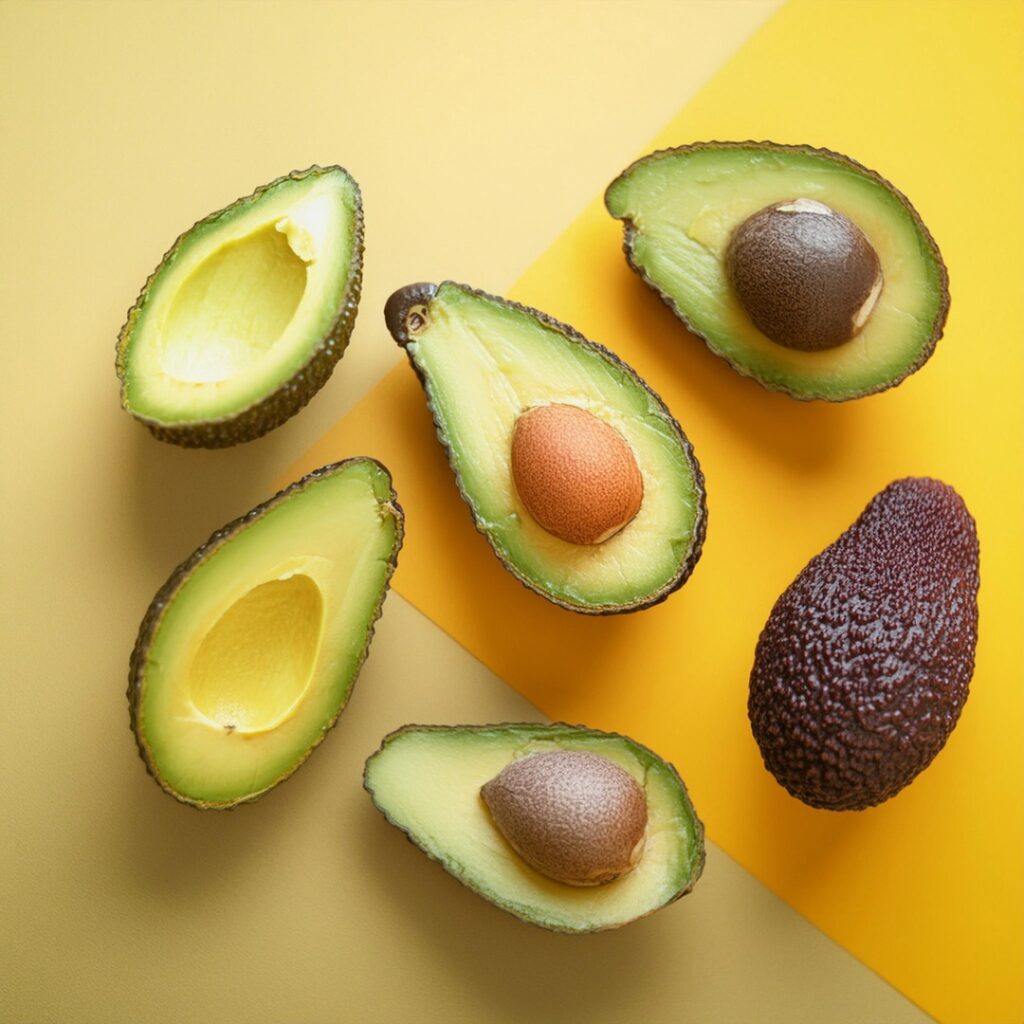Avocados have earned their reputation as a superfood, praised for their creamy texture, versatility, and impressive nutritional profile. But when it comes to cholesterol, there’s a lot of confusion. Are avocados a heart-healthy choice, or do they contribute to high cholesterol? In this post, we’ll dive into the science behind avocados and cholesterol, debunk common myths, and explore how this delicious fruit can fit into a heart-healthy diet. Whether you’re a health enthusiast or just curious about nutrition, this guide will provide evidence-based insights to help you make informed choices.
Elevate your style with our unique T-shirt featuring a vibrant, neon-style Boeing 757 soaring over a lush field of avocados. Shop now!

The Nutritional Powerhouse: What’s in an Avocado?
Before we tackle cholesterol, let’s break down what makes avocados so special. According to the USDA, a single serving of avocado (about one-third of a medium avocado) contains:
- Healthy Fats: 10 grams of monounsaturated fats, which are known to support heart health.
- Fiber: 3 grams, aiding digestion and promoting satiety.
- Vitamins and Minerals: Rich in potassium (more than a banana!), vitamin E, vitamin C, and folate.
- Low in Sugar: With less than 1 gram of sugar per serving, avocados are a great choice for maintaining stable blood sugar levels.
These nutrients make avocados a standout addition to any diet, but it’s their fat content that often sparks debate about cholesterol.
Avocados and Cholesterol: What Does the Science Say?
Cholesterol is a waxy substance found in your blood, and while your body needs it to build cells, too much can increase your risk of heart disease. The relationship between avocados and cholesterol is rooted in the type of fats they contain.
The Role of Healthy Fats
Avocados are packed with monounsaturated fats, which have been shown to improve cholesterol levels. According to the American Heart Association, replacing saturated fats (found in foods like butter and red meat) with monounsaturated fats can:
- Lower LDL Cholesterol: Often referred to as “bad” cholesterol, high levels of LDL can lead to plaque buildup in arteries.
- Increase HDL Cholesterol: Known as “good” cholesterol, HDL helps remove LDL from the bloodstream.
A 2015 study published in the Journal of the American Heart Association found that eating one avocado per day as part of a moderate-fat diet significantly reduced LDL cholesterol levels in overweight and obese adults.
Fiber’s Impact on Cholesterol
Avocados are also an excellent source of dietary fiber, which plays a key role in cholesterol management. Soluble fiber, in particular, binds to cholesterol in the digestive system and helps remove it from the body. This dual action of healthy fats and fiber makes avocados a powerful ally for heart health.
Debunking Common Myths About Avocados and Cholesterol
Despite the evidence, several myths persist about avocados and their impact on cholesterol. Let’s set the record straight:
Myth 1: Avocados Are Too High in Fat to Be Healthy
While avocados are high in fat, it’s the type of fat that matters. The monounsaturated fats in avocados are heart-healthy and can actually improve cholesterol levels when consumed in moderation.
Myth 2: Eating Avocados Will Raise Your Cholesterol
Research shows the opposite—avocados can help lower LDL cholesterol and increase HDL cholesterol. The key is to enjoy them as part of a balanced diet.
Myth 3: Only People with High Cholesterol Should Avoid Avocados
Even if your cholesterol levels are normal, avocados offer numerous health benefits, including improved nutrient absorption and reduced inflammation.

How to Incorporate Avocados into a Heart-Healthy Diet
Ready to add more avocados to your meals? Here are some practical tips:
- Swap Unhealthy Fats: Replace butter or mayonnaise with mashed avocado on toast or sandwiches.
- Add to Salads: Toss avocado slices into your favorite salads for a creamy texture and extra nutrients.
- Blend into Smoothies: Avocados add richness and healthy fats to smoothies without overpowering the flavor.
- Use as a Topping: Sprinkle diced avocado on soups, chili, or tacos for a nutritious boost.
Remember, moderation is key. While avocados are healthy, they are also calorie-dense, so stick to recommended serving sizes.
The Bigger Picture: Avocados and Heart Health
Avocados are just one piece of the puzzle when it comes to heart health. To maximize their benefits, pair them with other heart-healthy habits:
- Eat a Balanced Diet: Focus on whole foods like fruits, vegetables, whole grains, lean proteins, and healthy fats.
- Exercise Regularly: Aim for at least 150 minutes of moderate-intensity exercise per week.
- Avoid Smoking and Limit Alcohol: Both can negatively impact cholesterol levels and heart health.
- Manage Stress: Chronic stress can contribute to high cholesterol and other heart disease risk factors.
By combining these habits with regular avocado consumption, you can support your heart health and overall well-being.
Conclusion: Avocados Are a Heart-Healthy Choice
The myth that avocados are bad for cholesterol has been thoroughly debunked by science. Packed with healthy fats, fiber, and essential nutrients, avocados can actually improve cholesterol levels and support heart health when enjoyed as part of a balanced diet.
So go ahead—add a slice of avocado to your morning toast, blend it into your smoothie, or enjoy it as a snack. Your heart (and taste buds) will thank you!
References
- American Heart Association: Healthy Fats
- USDA National Nutrient Database: Avocado Nutrition Facts
- Journal of the American Heart Association: Avocado Consumption and Cholesterol Levels


